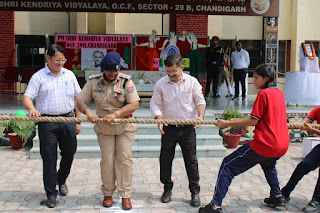When I first stumbled upon "Think Faster, Talk Smarter" by Matt Abrahams, it was not because I was searching for the perfect communication book. Rather, it was after an awkward moment where I had to answer a question on the spot and felt my words trip over themselves.
Out of curiosity, I looked for something that could help me handle such moments with more confidence. Listening to Matt narrate his own book was a delight, because his tone carried both calm authority and playful encouragement. It felt as if he was speaking directly to me, guiding me through techniques I could actually use, rather than abstract theories.
Here are eight lessons that stayed with me, each one unfolding in a way I could not ignore:
1. Embrace imperfection to reduce anxiety
Matt’s voice carried reassurance when he said that perfection is not the goal in spontaneous speaking. Hearing this made me realize how much pressure I often put on myself to sound flawless. He explained that audiences connect more with authenticity than polish. This lesson is valuable for anyone, because accepting imperfection frees you to focus on connection rather than performance.
2. Structure gives clarity under pressure
The author emphasized that even in spontaneous moments, a simple structure can anchor your thoughts. He suggested patterns like problem then solution or past then future. Listening to him explain this with real-life examples helped me see how structure makes ideas clearer and more memorable. For anyone who struggles in high-pressure conversations, this lesson provides a reliable framework to lean on.
3. Silence is not your enemy
At one point Matt spoke about the power of pausing, and it struck me because silence is often the very thing I fear in conversations. His narration made me understand that pauses give both the speaker and the listener space to think. This lesson showed me that silence can enhance credibility, and for anyone listening, it encourages patience instead of panic when words momentarily escape.
4. Focus on the audience, not yourself
What impressed me here was how Matt shifted the spotlight away from personal nerves and onto the needs of the audience. He explained that anxiety often comes from self-focus, but when you concentrate on what your listeners care about, confidence naturally rises. This lesson changed how I approach speaking, and for others, it offers a refreshing way to ease stage fright or conversational tension.
5. Prepare to be spontaneous
It almost sounded contradictory at first, but the author drove this home convincingly. He explained that by practicing frameworks, stories, and examples beforehand, you equip yourself to respond more flexibly when surprises come. His narration made me realize that spontaneity is not luck, but preparation meeting the unexpected. This lesson helps anyone who fears unpredictability see that readiness creates freedom.
6. Stories are more powerful than facts alone
Matt’s passion came through when he explained the role of storytelling in making communication memorable. Hearing him describe how stories capture attention and make ideas stick, I found myself recalling personal anecdotes that could be used in my own conversations. This lesson is useful for anyone who wants to move from simply informing to truly engaging.
7. Reframe anxiety as excitement
This part was particularly encouraging. Matt showed how the physical symptoms of anxiety are similar to excitement, and by labeling them differently, we can shift our mindset. His steady narration made the advice feel practical, almost like a mental trick you can use in the moment. For anyone who gets nervous when put on the spot, this lesson is a tool to transform fear into energy.
8. Practice active listening to respond better
Toward the end, the author stressed that good speaking is rooted in good listening. He said that paying close attention allows you to respond thoughtfully rather than react hastily. The way he explained it made me reflect on times I half-listened while preparing my answer. This lesson is invaluable for anyone because active listening deepens connection and leads to more relevant responses.
Listening to "Think Faster, Talk Smarter" was like having a skilled coach whisper strategies into my ear, reminding me that the ability to respond well in the moment is a skill, not an inborn gift. Matt’s warm and confident narration made each lesson feel accessible and actionable. By the time I finished, I felt not just smarter, but also braver when faced with those unscripted moments that life throws at us.
Source : https://www.facebook.com/share/p/16daqEaSee/
https://www.facebook.com/Bookplac?mibextid=ZbWKwL
Think Faster, Talk Smarter: How to Speak Successfully When You're Put on the Spot: Abrahams, Matt: 9781668010303: Amazon.com: Books

























